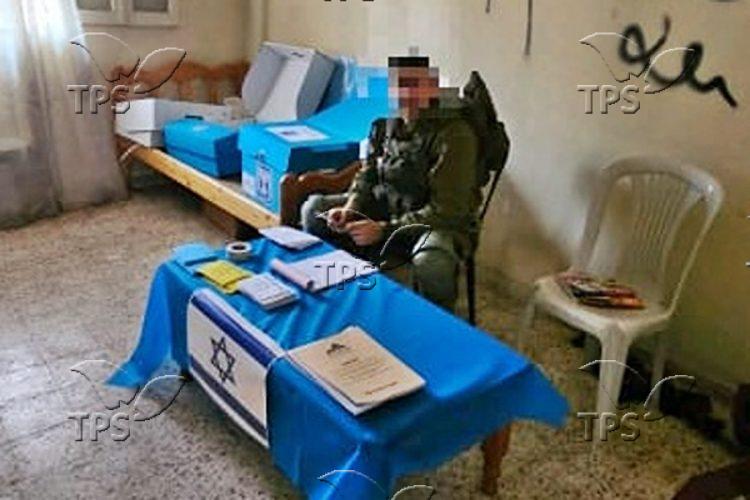Delayed by War, Israelis to Vote in Municipal Elections on Tuesday
Jerusalem, 26 February, 2024 (TPS) -- Israelis will go to the polls on Tuesday to vote in municipal elections that were delayed by the war. While arrangements were made for soldiers to cast their ballots, evacuees from communities near the Gaza and Lebanon borders will have to wait till November to vote.
Seven million Israelis will vote on mayors and council members in elections originally scheduled for October 31.
To ensure the safety of the elections, the military’s Home Front Command, Israeli Police and Interior Ministry will hold security evaluations throughout the day. In the event of rocket attacks, authorities will issue instructions on how to vote, and if necessary, postpone the elections.
Some 180,000 residents of communities adjacent to Gaza and Lebanon will vote on November 19.
More than 7.1 million Israelis are eligible to vote in 233 cities, regional councils and local councils throughout the country.
Around 400,000 people, mostly soldiers will cast their ballots from makeshift balloting locations in the Gaza Strip, army bases, or hospitals.
Races worth watching include the Jerusalem city council, where Sundus El-Khot, a teacher, is vying to become the first Arab to join the 31-seat council.
Jerusalem has a population of around one million, of whom some 700,000 are eligible to vote. This includes 420,000 Jews and 280,000 Arabs. Arab voters include Israeli citizens as well as roughly 150,000 Palestinian non-citizens who have temporary residence status.
Palestinians with temporary residence are entitled to vote in municipal elections and receive social benefits, but they are not allowed to vote in national elections or hold a mayoral office.
However, there is a longstanding taboo against Arab participation in city hall, as Arabs told the Tazpit Press Service that campaigning “legitimizes” Israeli control over the city.
Arab parties and individuals have never garnered enough votes to receive a city council seat. Historically, Arab participation in local elections has been around five percent.
In Tel Aviv, Mayor Ron Huldai, who has served for 25 years, is being challenged by Maj. Gen. (res.) Orna Barbivai, the highest-ranking woman in the Israel Defense Forces.
Separately, national elections for the Knesset, by law, must be held no later than October 27, 2026.







